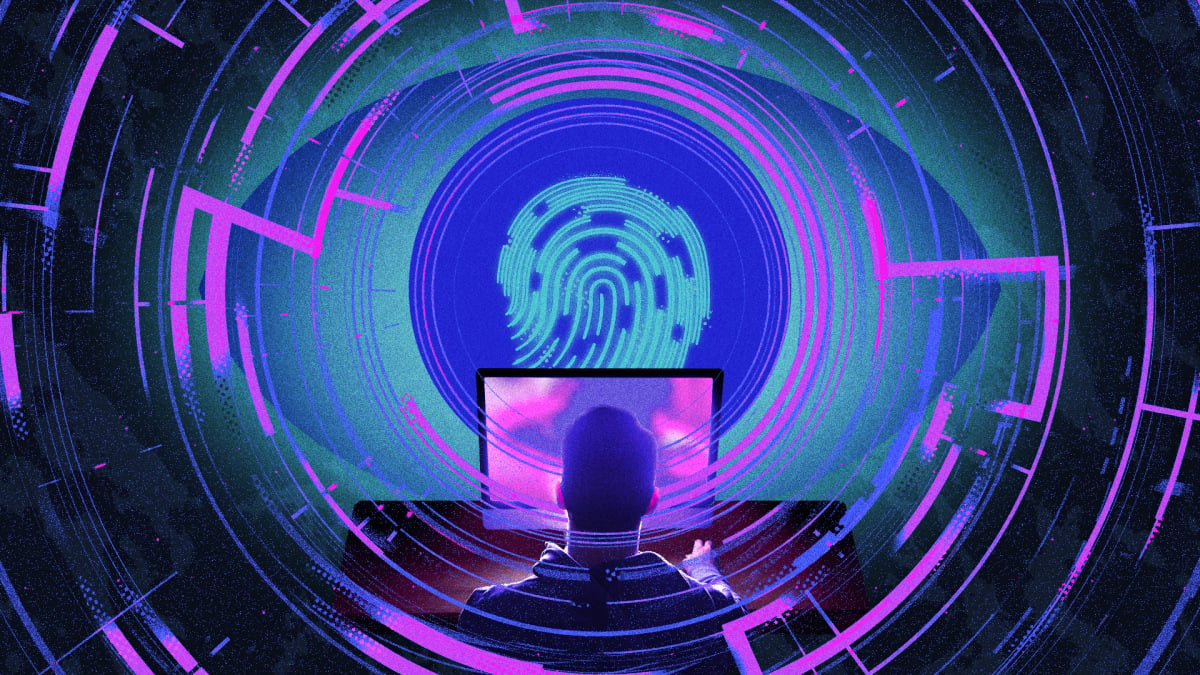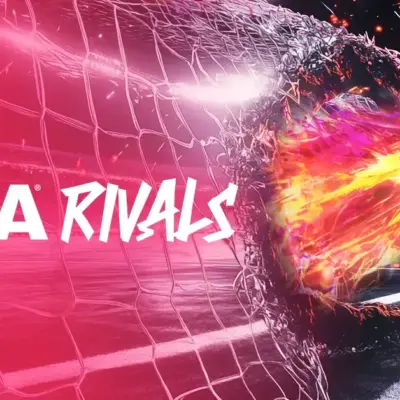Accessing porn — and the entire internet — has radically changed.
In June, the Supreme Court declared Texas’s age-verification law constitutional. The following month, the UK’s own age-verification law went into effect. Internet users have only begun to face the effects.
Age verification laws broadly refer to legislation that requires proof of age to enter a website that hosts explicit content. In the United States, these state laws vary in language and requirements. In the UK, specific types of age assurance are listed, such as a facial scan or a credit card.
While these laws are outwardly about preventing minors from accessing porn sites, the reality is that they’re being applied to mainstream social media sites and independent websites, and require adults to submit their personal information in order to access swaths of the internet.
And this is only the beginning. Mashable spoke with experts who expressed “doom and gloom” about the future of our online lives.
What is age verification doing to the internet?
The UK’s Online Safety Act doesn’t just age-gate porn; it blocks material deemed “harmful” to minors. Days after the law went into effect, reports of non-explicit content on social media getting blocked in the region started to crop up. Subreddits from r/IsraelCrimes to r/stopsmoking are now walled in the UK. Video games, Spotify, and dating apps have instituted or will institute age checks.
“The rollout of the Online Safety Act has shown just how disastrous this type of regulation can be,” said Mike Stabile, director of public policy at adult industry trade organization, the Free Speech Coalition.
Not only is age verification unpopular in the UK, but it’s also ineffective. VPN downloads have soared, so people can pretend to be in a different location. Another creative workaround is using a selfie of a video game character to circumvent the check.
Over in the U.S., a preliminary study out of NYU also suggested that age verification doesn’t work for these reasons. Some states have them, and others don’t, and the statutes are vaguer — so it hasn’t evoked such a broad-based reaction. But the Supreme Court decision sealed that age-verification laws will keep coming.
Adult performer and activist Siri Dahl told Mashable she’s increasingly exhausted, not just by the SCOTUS decision, but also by how “a lot of average folks out there really don’t understand the impact that this — well, has already started to have — but how far things can really go when it comes to censorship.”
Online sex workers are already well-versed in the erasure of sexual content. In 2018, President Trump signed sister bills FOSTA/SESTA into law during his first term. While ostensibly passed to thwart sex trafficking, FOSTA/SESTA carved out an exception to Section 230 of the Communications Decency Act of 1996, making online publishers liable for solicitation posts on their websites.
Many sites, including major social media platforms Facebook and Instagram, cracked down on sexual and sexually suggestive content as a result of FOSTA/SESTA. Over the years, sex workers have seen their accounts banned or shadowbanned online — as have sex educators, artists, and LGBTQ creators. And studies show that it makes sex workers less safe.
Other proposed legislation, like the EARN IT Act and the Kids Online Safety Act, also had similar trickle-down concerns from free speech advocates, such as the Electronic Frontier Foundation. The more recent TAKE IT DOWN Act, which passed earlier this year, could also censor legal, consensual sexual content.
Dahl told Mashable she’s on her eighth Instagram account, and said the platform is getting more and more strict. This year, she’s noticed that even the links OnlyFans creators like herself have in her bio, like Linktree, are starting to get “blacklisted” by being associated with adult content creators. (Instagram and Linktree haven’t responded to Mashable’s request for comment.) The link service she now uses, GetAllMyLinks.com, opens in the browser app as opposed to the Instagram app, so Instagram couldn’t track where visitors would click out of from there. Apparently, Instagram found out about that, and “dinged” her account so she couldn’t post anything new until she changed the link.
Dahl is also seeing what she calls “OnlyFans fatigue,” where the average person online gets tired of seeing OnlyFans models making viral videos on Instagram or TikTok to advertise their paid content. But “this viral strategy only exists because of attempts to censor the internet,” she said. Creators can’t be straightforward about pitching their OnlyFans, lest they be booted off the platform and not be able to advertise at all.
Her own income has dropped thirty percent in 2025. This is partly because it’s difficult for her to switch between advocacy work and porn, but she also attributes it to Pornhub blocking itself in most states with age verification laws because of the burden to comply.
This tactic — pushing porn sites to remove themselves from states with these laws — is the “back door” strategy to ban porn, according to Project 2025 co-writer Russell Vought. In a secret recording, Vought, the director of the Office of Management and Budget, said that’s the ultimate goal of these laws.
Yet, Dahl said the number one comment she gets when she speaks about age verification is that on Instagram is that, “there’s no way they’d actually ban porn.”
Mashable Trend Report
“It’s a lot of denial,” she continued.
Before the 2024 election, Dahl hosted the “Corn Telethon,” a 12-hour livestream to raise awareness about Project 2025 and fundraise to help sex workers. Dahl is hosting the second Corn Telethon on September 4, this time with the broader message that free speech is for everyone.
“We’re now deep enough into [the censorship] that you can start to see how it affects things completely outside of the adult industry,” she said.
Porn and Project 2025
Banning porn is a cornerstone of Project 2025, the right-wing policy wishlist for Trump’s second term. Already, a bill introduced in May (the Interstate Obscenity Definition Act) would rewrite SCOTUS’s definition of “obscenity” (which isn’t protected by the First Amendment), and effectively ban porn. Right after Trump’s inauguration, an Oklahoma senator introduced a bill to ban porn and imprison its creators.
Given the SCOTUS age verification decision, Stabile fears that people will go “mask off” in the fall and spring, when state legislatures start getting back together.
“People are going to attempt to restrict the internet even more aggressively,” Stabile said. “I think people are going to work to restrict all sorts of content, particularly LGBTQ content, but also content that is broadly defined as any sort of threat or propaganda to minors.”
Other experts Mashable spoke to agree with him.
Our dystopian online future
“At this point, legislatures feel no inhibition about trying to, quote, ‘protect children online,’ and so they’re going to do the craziest shit,” said Eric Goldman, law professor at the Santa Clara University School of Law.
Goldman couldn’t predict what that would look like, but he said that’s the intermediate step. “I’m going to jump to the end step,” he said. “The end step is that most online users are going to be required to age authenticate most of the time they visit websites. That’s going to become the norm.” In a paper he wrote, Goldman called these statutes “segregate-and-suppress” laws.
Jess Miers, a visiting assistant professor of law at the University of Akron School of Law, said what happened in the UK is coming around the corner to the U.S. “We’re gonna be following a lot of what we’re seeing in the UK, which is the facial recognition, the giving over your identity, your physical ID,” she said.
It’s already happening: YouTube is now requiring age verification. It will apparently use AI to do so, but if it can’t determine one’s age from that, users will have to upload an ID or credit card.
When the SCOTUS decision came down in June, Miers posted on Bluesky that, “The blood is absolutely on the mainstream technology companies.” Miers previously worked for the technology trade organization Chamber of Progress and wanted to file a brief in support of the Free Speech Coalition, which was fighting against Texas’s age verification law (in what ultimately became the SCOTUS case).
That ended up not happening. “The technology companies simply did not want to touch pornography,” Miers said. In general, she said, tech companies try to stay away from the adult industry.
Miers believes that if big tech companies had shown up and fought against age verification because of the trickle-down effect of this decision, it would’ve brought more attention to the issue. Instead, people thought it wasn’t going to impact them and didn’t want to be associated with pornography.
Tech companies didn’t think about “second-order censorship,” Miers said, which comes after the primary regulation of censorship. An example is going after VPNs, as people are trying to use them as a workaround for the primary censorship.
“Censorship begets censorship,” Goldman said. “If you’re going to do censorship round one, people are going to try and evade it.”
There’s also the privacy concern about handing over information to random third parties at the risk of leaks. The hack of the Tea app is just one example of how technological vulnerabilities that lead to threats to people’s safety.
Think about the children
The stated reason behind these laws is to “protect children.” But as journalist Taylor Lorenz pointed out, in the UK, age verification is already preventing children from accessing vital information, such as about menstruation and sexual assault.
Goldman said that many children will grow up “in a sanitized, controlled, censored internet.” Miers worries about whether the next generation will be stunted because they won’t have the tools to learn how to use the internet effectively and safely, and what a changed internet will mean for their development, ability to socialize, and access to like-minded communities.
“Kids are going to miss out on in terms of educational resources in terms of things like LGBTQ+ resources,” she said. That was a big part of my use of the internet when I was growing up back then. It’s self-discovery, right?”
“When we see crackdowns on spaces on the internet, we’re essentially stripping away that potential for self-actualization,” Goldman said. We’ve reached the dystopian stage of the internet, he added.
Is there hope for the internet?
In the face of censorship, Stabile and Dahl both called the adult industry resilient. Porn creators have been prosecuted before: obscenity court cases, raids on porn companies, and imprisonment, to give a few examples.
“The industry is a weed,” Stabile said. “It is adept at growing in really hostile circumstances and figuring out ways to exploit the cracks and the resources that are available to survive.”
Those inside the porn industry want alternative solutions that keep minors out while not impeding on adults’ viewing. (Device-level filters are often said to be the better fix.) They also want to stop people from going to non-compliant sites, Stabile continued, so pirate sites and places that don’t take down illegal content like child sex abuse material or non-consensual media.
The state of the internet does look dire. But Stabile compared it to knowing a hurricane is coming. You know it’s going to wreak havoc, but that doesn’t mean you don’t board the windows and protect what you can protect.
“This isn’t the end of a battle,” he said. “This is the beginning of one.”






